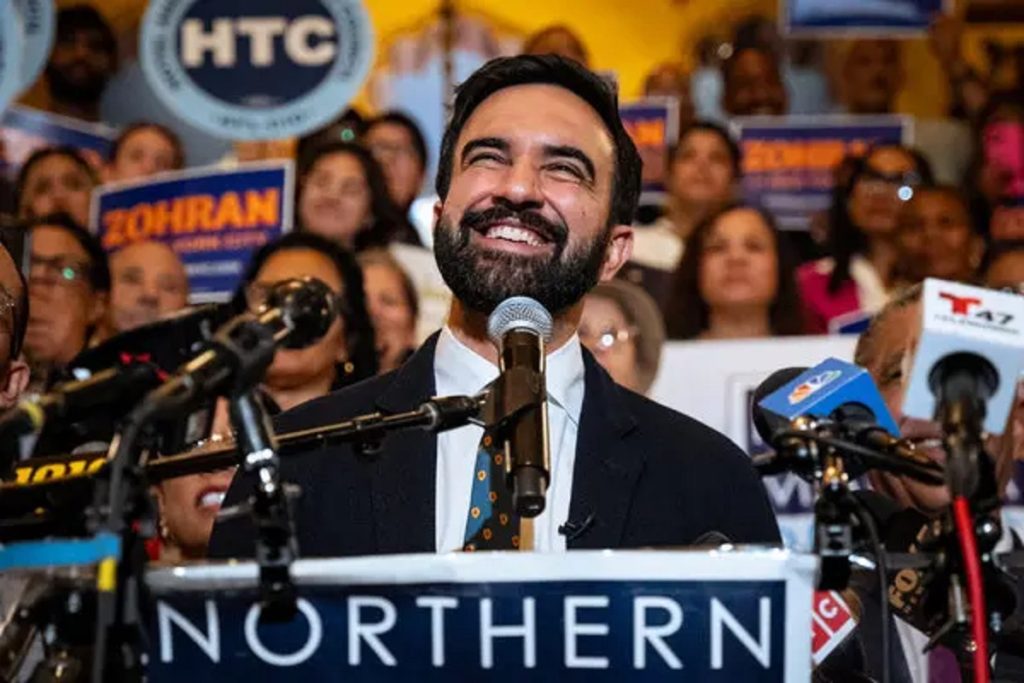The journey of New York’s Muslim community—from facing suspicion after the events of September 11 to emerging as a formidable political force—is epitomized by figures like Zahran Mamdani, poised to become the city’s first Muslim mayor. This transformation highlights years of dedicated organizing, increased civic participation, and a strategic shift toward addressing issues affecting all New Yorkers.
Following the tragic attacks of September 11, 2001, New York City experienced a profound period of fear and devastation. While all residents faced trauma, Muslims in New York bore an additional burden of scrutiny, surveillance, and targeted harm.
Islamophobia surged, acts of vigilantism increased, and mass arrests were carried out on flimsy grounds, reflecting the emergence of an expanded security state that frequently violated Muslim civil rights. From these challenging beginnings, a movement of resilience began to take shape, turning adversity into a catalyst for change.
From 9/11 to Mayoral Politics: The Rise of New York’s Muslim Civic Power
Twenty-four years later, New York’s political landscape shows remarkable transformation. The city is now on the verge of electing its first Muslim mayor, 34-year-old Democratic Socialist Zahran Mamdani. His success is attributed not only to his eloquence and persuasive political skills—earning him recognition as a “once-in-a-generation leader”—but also to a broader, quieter movement of young Muslims in New York. They built political power after 9/11, developed local institutions, and embraced a form of politics that transcends narrow identity, focusing instead on broader community well-being.
This movement emerged out of necessity to counter rising Islamophobia and government overreach, gradually gaining political influence. Efforts included building local institutions and adopting a unique approach to politics that balanced identity with broad appeal. With New York’s Muslim population now estimated at around one million, their collective voice cannot be ignored by aspiring political leaders.
Although only a small portion of registered Muslim voters participated in past municipal elections, recent trends show a significant increase in turnout, with a 60% rise in the latest primary elections. This growing engagement reflects an evolving political awareness and a push to influence the Democratic Party toward progressive stances on key issues.
The foundations of this political awakening began immediately after 2001. Community organizations such as DRUM (Desis Rising Up & Moving) worked tirelessly to identify individuals detained under dubious immigration pretexts and warned community leaders against cooperating with federal agencies.
Early efforts were largely reactive, addressing crises like mandatory male registration from Muslim-majority countries, FBI interviews, and widespread surveillance. The founding of the Muslim Democratic Club of New York in 2013 marked a pivotal shift toward proactive engagement, hosting municipal forums and advocating for issues like incorporating Islamic holidays into public school calendars and challenging warrantless surveillance.
Zahran Mamdani: From Grassroots Activism to Leading New York
Zahran Mamdani’s political journey testifies to this grassroots organizing. He began volunteering in local campaigns, learning from previous candidate losses, and accumulating institutional knowledge. He served on the board of the Muslim Democratic Club and managed other progressive campaigns before winning his own seat in the state legislature in 2020. His active advocacy for taxi driver debt relief—many from South Asian backgrounds—and collaboration with organizations like DRUM on surveillance issues reflect his commitment to using his office to advance the public good.
Importantly, Mamdani’s policies are not solely identity-based. While acknowledging his heritage, he leverages identity as a bridge to address universal issues. Colleagues note that his focus on affordable housing, public transit, and comprehensive childcare aligns with democratic socialist principles and Islamic values, benefiting all New Yorkers regardless of background. This broad appeal is reflected in his fundraising, which relies heavily on small donations, signaling strong grassroots support across the city’s diverse communities.
Mamdani’s rise is part of a broader trend among American Muslim politicians, often allied with Democratic Socialists or leaning clearly left. This political alignment emerged directly from the post-9/11 environment, where the left was one of the few spaces generally open, welcoming, and supportive of Muslim communities against oppression. For many, American socialists provide an alternative to the mainstream Democratic Party, offering a platform where their voices are heard and concerns addressed, fostering a deep sense of empowerment and representation.
This journey—from marginalization to shaping the leadership of New York City—is a powerful story of resilience, community-building, and transformative political participation. It marks a new era where Muslims in New York not only exist but actively lead and influence the city’s future.

